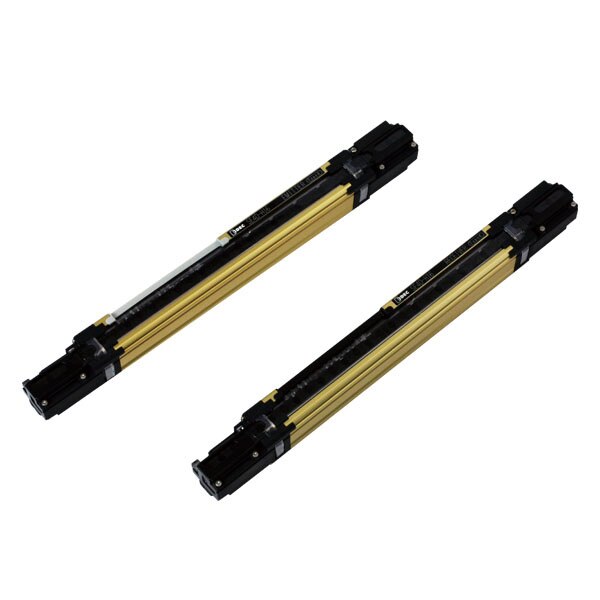SE4D Series
Conventional light curtains had dead zone where there are no beam axis at both ends. With SE4D the first beam axis placed right along the edges, detection can be performed along the entire area. Up to 3 sets (emitter/receiver) can be connected in series to cover L or U shaped configurations, or to guard both the front and back of a machine.
SE4D light curtain is equipped with a muting control function that causes a line to stop only when a person passes through the light curtain, but does not stop the line when an object passes through. The muting sensor and muting lamp can be directly connected to the light curtain. A special controller for muting is not required thus reducing cost.
Fixed blanking prevents the control output (OSSD1/2) from turning off when a specific beam is interrupted. This is used in applications where a specific beam is always interrupted. When the object is moved outside of the sensing area, the control output (OSSD1/2) turns off. Floating blanking function prevents the control output (OSSD1/2) from turning off when the number of beams interrupted is less than a preset number. The number that can be set is from 1 to 3 beams. This function enables sensing even when the position of the obstacles changes in the sensing area.
SE4D light curtain is equipped with a muting control function that causes a line to stop only when a person passes through the light curtain, but does not stop the line when an object passes through. The muting sensor and muting lamp can be directly connected to the light curtain. A special controller for muting is not required thus reducing cost.
Fixed blanking prevents the control output (OSSD1/2) from turning off when a specific beam is interrupted. This is used in applications where a specific beam is always interrupted. When the object is moved outside of the sensing area, the control output (OSSD1/2) turns off. Floating blanking function prevents the control output (OSSD1/2) from turning off when the number of beams interrupted is less than a preset number. The number that can be set is from 1 to 3 beams. This function enables sensing even when the position of the obstacles changes in the sensing area.
Key Features:
